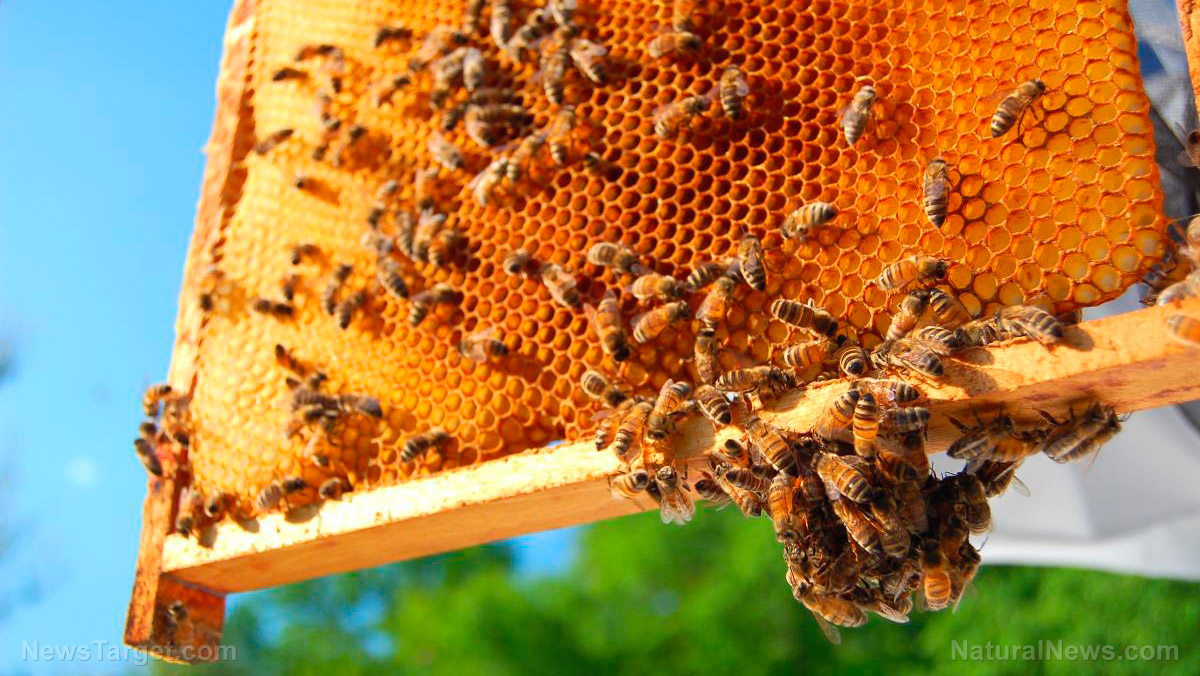Mexican marigold essential oil contains phytotoxic compounds, making it a great natural herbicide
12/21/2018 / By Zoey Sky

A study published in the journal Industrial Crops and Products reported that essential oils from Tagetes erecta L. (Mexican marigold) can be used to formulate a safer alternative to chemical herbicides. For the study, researchers analyzed the chemical composition of essential oil extracted from T. erecta.
- Plant-derived substances, especially essential oils, are often considered as a natural alternative to chemical herbicides since they are safer to use. These environmentally-friendly oils can potentially be used to make effective alternatives to chemical herbicides.
- The team of researchers tested the herbicidal activities (pre-and post-emergence) of the essential oil against Echinochloa cruss-galli (Cockspur grass).
- After extracting the essential oil, the researchers used gas chromatography-mass spectrometry to determine its chemical composition. The test results showed that the oil contained relatively high amounts of monoterpenes such as piperitone (17.12 percent), piperitenone (10.46 percent), and ocimene (8.59 percent).
- The essential oil also had sesquiterpenoids, which were made up of mostly neophytadiene (16.18 percent) and caryophyllene (11.10 percent).
- The researchers formulated the essential oil as an emulsifiable concentrate (EC-EO) for herbicidal applications. To confirm the seed germination and seedling growth of E. crus-galli, researchers used Petri dish bioassay for EC-EO concentrations. The results of the bioassay revealed that the EC-EO completely inhibited the germination and growth of E. crus-galli seeds via the inhibition of alpha-amylase activity.
- The post-emergence application of EC-EOs was also tested by applying the concentrate to 21-day-old E. crus-galli plants. Once exposed to the concentrate, the leaves of the plants became desiccated and wilted.
- Using greater concentrations of the essential oil decreased the chlorophyll a, b, and carotenoid content of the E. crus-galli plants. This implies that the EC-EO can halt photosynthetic metabolism. Using the concentrate also resulted in the loss of membrane integrity and an increase in thiobarbituric acid reactive substances.
The researchers believe that based on the positive test results, T. erecta essential oil’s phytotoxic compounds can be used as natural herbicides for effective weed control.
Browse other articles about research findings on natural alternatives to herbicides at GreenLivingNews.com.
Journal Reference:
Laosinwattana C, Wichittrakarn P, Teerarak M. CHEMICAL COMPOSITION AND HERBICIDAL ACTION OF ESSENTIAL OIL FROM TAGETES ERECTA L. LEAVES. Industrial Crops and Products. 2018;126:129–134. DOI: 10.1016/j.indcrop.2018.10.013
Tagged Under:


















